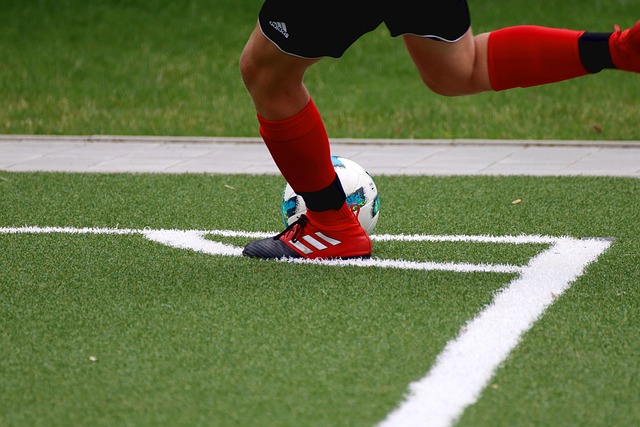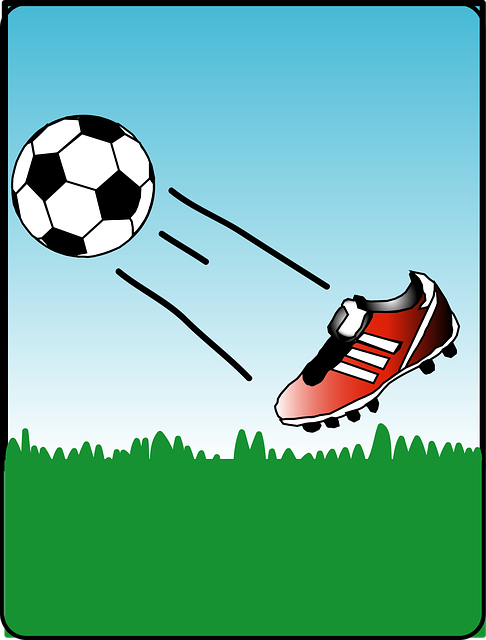College soccer teams prioritize pre-season tactics as a crucial strategic period for player development and fitness assessment. Through rigorous training, including physical evaluations, position-specific drills, and match analysis, coaches tailor programs to enhance endurance, agility, and skills. This preparation ensures players are in peak condition, mentally tough, and tactically adept for competitive matches, making pre-season a vital component of college soccer teams' success.
In the competitive realm of college soccer, pre-season preparation is paramount. This article delves into the multifaceted strategies employed by Ducks soccer teams to optimize performance ahead of the upcoming season. From assessing player fitness and developing tailored skill plans to implementing tactical innovations and fostering a cohesive team culture, each aspect is meticulously crafted. Additionally, emphasis is placed on injury prevention and management, ensuring players are ready for the rigors of high-level competition. Discover how these tactics contribute to the success and resilience of college soccer teams during pre-season training.
- Assessing Player Fitness and Development
- – Pre-season physical evaluations
- – Individual skill development plans
- – Team conditioning routines
Assessing Player Fitness and Development

Before the kickoff of any season, college soccer teams employ strategic pre-season tactics to assess and optimize player fitness and development. This period is crucial for coaches to gain insights into their squad’s physical and technical capabilities. Through rigorous training sessions and friendly matches, evaluators can identify areas of strength and weakness within the team dynamic. By monitoring individual progress, coaches tailor exercises to enhance endurance, agility, and skill sets specific to each player’s role on the field.
The pre-season evaluation process involves comprehensive testing, including fitness assessments, position-specific drills, and match analysis. This holistic approach allows coaches to pinpoint areas requiring improvement and design targeted training programs. For instance, a coach might observe a striker’s goal-scoring prowess but identify a need for better defensive positioning. Thus, the team can focus on tactical adjustments, ensuring players are not only fit but also tactically adept, ready to excel in competitive matches ahead.
– Pre-season physical evaluations

Before the kick-off of the season, college soccer teams undergo rigorous pre-season physical evaluations to ensure optimal performance and prevent injuries. These assessments are designed to gauge each player’s strength, endurance, flexibility, and overall fitness level. Through advanced testing methods, coaches and training staff gain valuable insights into their squad’s capabilities, allowing for tailored training programs that maximize individual potential.
The evaluations often include a combination of aerobic and anaerobic exercises, agility drills, and resistance tests. By simulating match-like scenarios, teams can assess players’ recovery abilities, explosive power, and stamina. This data is instrumental in shaping the team’s tactical strategies, as coaches can identify areas for improvement and develop targeted conditioning plans to prepare for the rigors of competitive play.
– Individual skill development plans

College soccer teams, like the Ducks, understand that pre-season is a crucial time for individual skill development. During this period, coaches and training staff create tailored plans to help each player improve their technical abilities, tactical understanding, and physical conditioning. These skill development plans often include specialized drills designed to sharpen passing, shooting, dribbling, and defensive skills. The focus here is on building a strong foundation that will enable players to excel throughout the competitive season.
Furthermore, pre-season training provides an opportunity for players to work on their individual strengths while addressing weaknesses. Through consistent practice, players can refine their first touch, improve ball control, enhance speed and agility, and develop stronger shooting techniques. This dedicated time allows college soccer teams to prepare their players mentally and physically, ensuring they are ready to compete at their highest level when the season kicks off.
– Team conditioning routines

College soccer teams, like the Ducks, lay a strong foundation for their pre-season through rigorous conditioning routines. These programs are designed to improve endurance, strength, and agility, all essential components for high-intensity matches. The routines often include a mix of cardiovascular exercises such as running intervals and sprint training, alongside strength and conditioning sessions focused on building muscular power and stability. This blend prepares players not just physically but also mentally for the rigors of competitive play.
Additionally, these routines emphasize injury prevention through stretching and mobility work, which is crucial given the frequent contact and sudden changes in direction that occur during college soccer games. The Ducks’ conditioning staff plays a vital role in ensuring each player is pushed to their limits while maintaining a safe environment, setting the stage for a successful season ahead.






